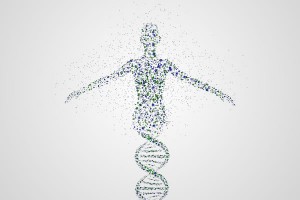Top 10 Prebiotics
Prone to infections? Suffering from NEW allergies? Have no energy in spite of getting lots of sleep?
There are differences between the best probiotics and prebiotics on the market. Wondering whether you need to include probiotics and prebiotics in your diet? Ask yourself: 1) What do these do for gut health 2) Why you might be feeling unwell without them
Prebiotics
Prebiotics are found in whole grains, bananas, onions, garlic, honey and artichokes. Find out more about gluten free whole grains here.
Prebiotics Probiotics
Prebiotics are non digestible carbohydrates. Prebiotics act as food for probiotics. When probiotics and prebiotics are combined, they form a synbiotic. Fermented dairy products – such as live organic yogurt and kefir – are considered synbiotic. This is because they contain live bacteria and the fuel they need to thrive. If we have an autoimmune disorder or fighting any of the above, it might be time to include prebiotics in your diet.
Prebiotic foods
Prebiotic foods selectively stimulate the growth of the beneficial bacteria already inhabiting the gut. These foods include 1) onions (2) jerusalem artichoke, and fruits and vegetables high in soluble fibre: (3) sweet potatoes (4) brussels sprouts (5) asparagus (6) turnips (7) mango (8) avocados (9) strawberries (10) apricots
Modern lifestyles makes us fat and diabetic because of poor gut health [tweetthis twitter_handles=”@SusannahMakram” hidden_hashtags=”#prebiotics” url=”http://susannahmakram.com/?p=1416″]Moder lifestyles make us fat and diabetic because of poor gut health[/tweetthis]
There is no getting around it: healthy gut bacteria is a necessity not a luxury. When it comes to maintaining a healthy weight and metabolism you need to start with your gut environment. Unfortunately, several features of the modern lifestyle directly contribute to unhealthy gut flora:
- Antibiotics and other medications like birth control and NSAIDs
- Diets high in refined carbohydrates, sugar and processed foods
- Diets low in fermentable fibers
- Dietary toxins like wheat and industrial seed oils that cause leaky gut
- Chronic stress – the “bad” Stress not the “good” stress
- Chronic infections (lowered immunity)
Soluble fibre dissolves in water to form a gel. It is especially rich in prebiotics called fructo-oligosaccharides. These include compounds called inulin and oligofructose. These compounds are not broken down by stomach acid or digestive enzymes. Instead they are fermented and used by beneficial bacteria in the colon, especially two types called lactobacillus and bifidobacter.
Another type of prebiotic compound is called galactooligosaccharide, or GOS. It is a natural component of human breast milk. This helps get a newborn’s digestive tract off to a good start. GOS provides nutrition for the baby’s colonies of beneficial intestinal bacteria. It also helps prevent pathogenic bacteria from attaching to the lining of the baby’s tract. GOS is especially beneficial for bifidobacter colonies in the colon, according to this review published in the “Journal of Nutrition.”
Best Supplements
If you have a health condition that interferes with your ability to consume fiber-rich foods, an organic soil based, probiotic combined naturally with a prebiotic is advisable. If you have a health condition that interferes with your ability to drink milk, this is also true. Fiber supplements that contain wheat dextrin or psyllium are also good sources of prebiotics. Supplements are generally considered safe but may cause gas and bloating as undesirable side-effects in some people. Before deciding to go down the supplement route it is advisable to discuss prebiotic supplements with your specialist to determine if they are a good choice for you.
Always Read The Label. Are soluble fiber food additives present in your day-to-day household products? Inulin is sometimes added to beverages and some baked goods and snacks. This makes them prebiotic foods. Another manufactured product called polydextrose acts as a soluble fiber. It is also a common food additive, used to thicken and replace some sugar in cakes and dessert mixes and puddings. Weight Loss or Low Fat or “diet” food products: Wheat dextrin, a grain-derived soluble fibre, is also added to soft foods and beverages by manufacturers to increase the product’s thickness and to replace some dietary fat and lower calories.



